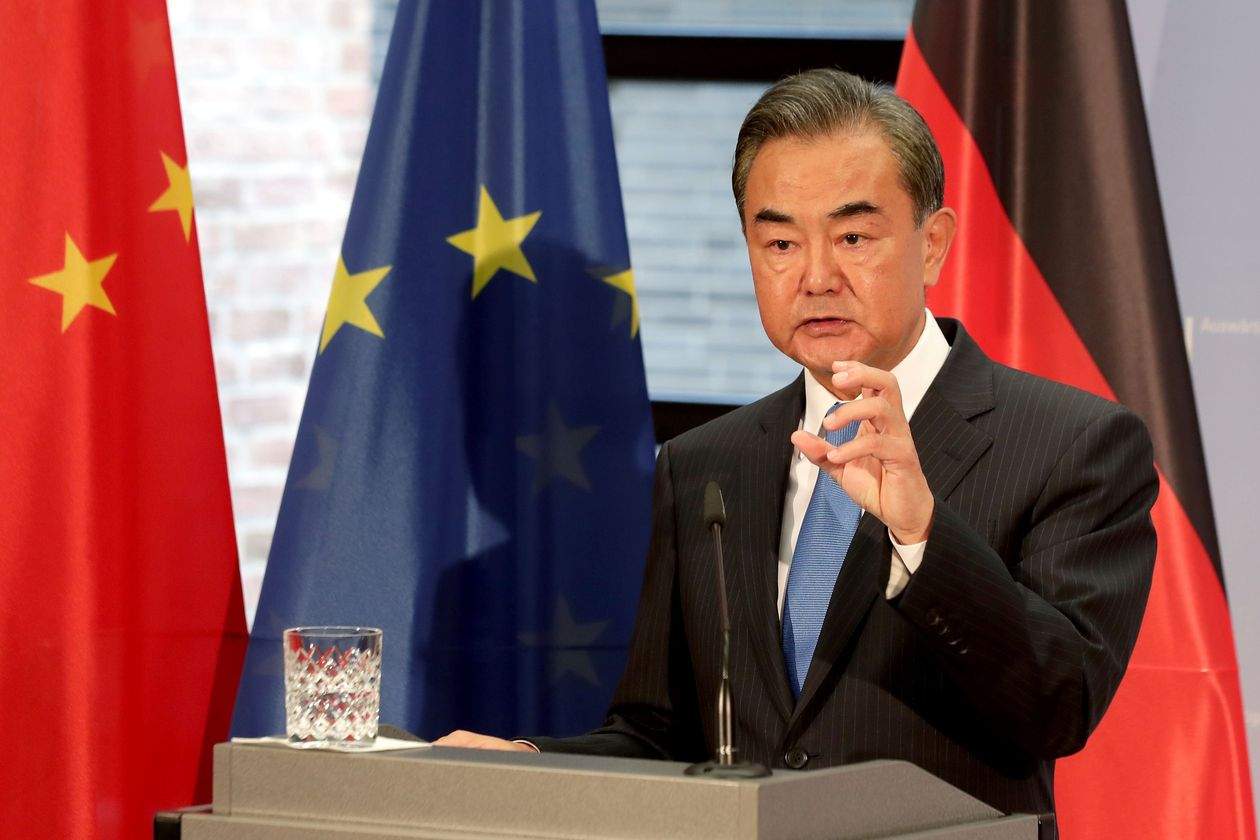China Launches Initiative to Set Global Data-Security Rules

China is launching its own initiative to set global standards on data security, countering U.S. efforts to persuade like-minded countries to ringfence their networks from Chinese technology.
Announcing the initiative on Tuesday at a Beijing seminar on global digital governance, Chinese Foreign Minister Wang Yi cited growing risks to data security and what he characterized as efforts to politicize security issues and smear rival countries on technology matters—in an apparent swipe at Washington.
To counter such challenges, “it is important to develop a set of international rules on data security that reflect the will and respect the interests of all countries,” Mr. Wang said, according to a transcript of his speech published by China’s Foreign Ministry. The Wall Street Journal reported on Monday that Beijing planned to unveil the initiative.
Beijing’s initiative comes amid heightened tensions with Washington over issues including trade and technological competition, which has raised the specter of an increasingly bifurcated internet.
In recent months, the Trump administration has taken steps to curtail what it describes as national-security threats from Chinese tech firms like Huawei Technologies Co. and popular Chinese apps including ByteDance Ltd.’s TikTok and Tencent Holdings Ltd. ’s WeChat. Chinese officials, meanwhile, have accused the U.S. of imposing a double standard and of trying to sabotage the efforts of Chinese businesses to expand.
The Chinese initiative comes about a month after U.S. Secretary of State Mike Pompeo announced the Clean Network program, which would exclude Chinese telecommunications firms, apps, cloud providers and undersea cables from internet infrastructure used by the U.S. and other countries.
Under its new “Global Initiative on Data Security,” China would call on all countries to handle data security in a “comprehensive, objective and evidence-based manner” and maintain an open, secure and stable supply chain for information and communications technology and services, according to a text released by the Chinese Foreign Ministry.
It also would urge governments to respect other countries’ sovereignty in how they handle data—in line with Beijing’s vision of “cyber sovereignty,” whereby countries exercise full control over their own corners of the internet.
The initiative doesn’t mention the U.S. or its Clean Network program. Mr. Wang nonetheless made it clear in his announcement that the move comes in response to the White House effort.
“Bent on unilateral acts, a certain country keeps making groundless accusations against others in the name of ‘clean’ network and used security as a pretext to prey on enterprises of other countries who have a competitive edge,” Mr. Wang said, according to the transcript. “Such blatant acts of bullying must be opposed and rejected.”
The Beijing initiative offers commitments that echo China’s responses to American allegations of Beijing’s unfair trade practices and security threats from Chinese technology.
For instance, the Chinese initiative would urge countries to oppose “mass surveillance against other states,” and call on tech companies not to install “backdoors in their products and services to illegally obtain users’ data, control or manipulate users’ systems and devices.” U.S. officials have accused Huawei of engaging in such activities and urged friendly governments to block the Chinese company from their domestic 5G networks. Huawei has denied these allegations.
Chinese diplomats have approached a number of foreign governments to seek their support for Beijing’s initiative, people briefed on the matter said. It wasn’t clear how much interest it has garnered so far.
Given rising risks to data security that require a global solution, “what is pressing now is to formulate global rules and norms that reflect the aspiration and interests of the majority of countries,” said a briefing note on the new initiative that Chinese diplomats provided to foreign counterparts ahead of the announcement, a copy of which was reviewed by the Journal.
More than 30 countries and territories were part of the U.S. Clean Network program as of early August, according to the State Department. Mr. Pompeo described it as an effort to protect the privacy and data of American citizens and businesses from hostile groups like China’s Communist Party. He also encouraged foreign governments and companies to participate in securing their data from the Chinese Communist Party’s “surveillance state and other malign entities.”
Mr. Wang signaled Beijing’s plans for its own data-security initiative on a videoconference last week with foreign ministers from the Group of 20 nations.
“Data security is an issue of shared interest for countries around the world,” Mr. Wang said on the video conference, according to China’s Foreign Ministry. “We call on all parties to communicate and coordinate in a constructive way as we work to ensure the secure and orderly cross-border flow of data.”
Photo: China's Foreign Minister Wang Yi earlier this month in Berlin.
PHOTO: MICHAEL SOHN/PRESS POOL




